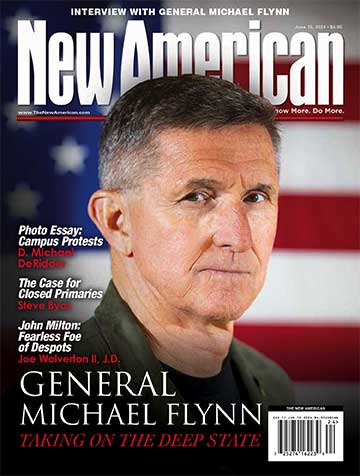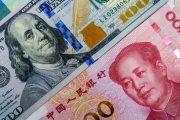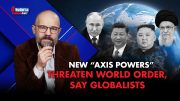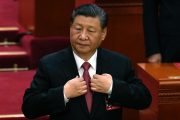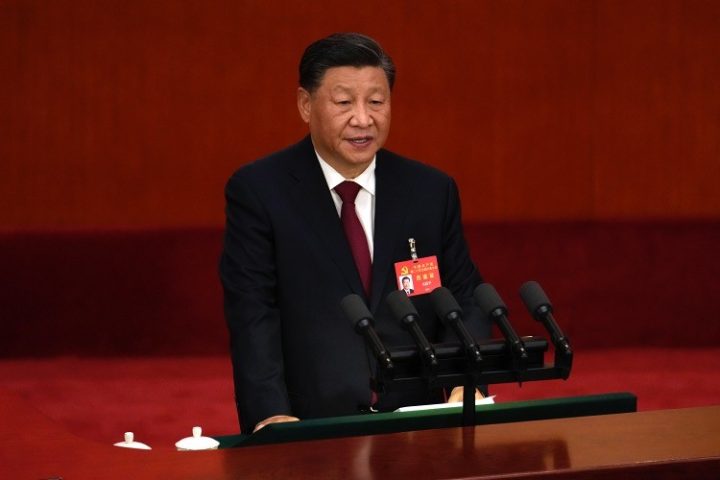
Chinese President Xi Jinping kickstarted the once-in-five-years Communist Party Congress on October 16 with a lengthy speech outlining the party’s actions and its intended direction for the future. In his speech, given before roughly 2,300 delegates in Beijing’s Great Hall of the People, Xi characterized the past five years since the previous party congress as “extremely uncommon and abnormal.” He then encouraged the Chinese people to be vigilant for impending dangers as well as prepared for upcoming trials.
Following are some of the main highlights of Xi’s speech and analyze some of their implications.
Xi asserted that China is dealing with significant desires for separatism in Taiwan as well as external interference on the self-ruled island.
“Resolving the Taiwan issue is a matter for the Chinese people themselves, to be decided by the Chinese people,” Xi said.
“We will never renounce the right to the use of force [in resolving the Taiwan issue], and will take all necessary measures to put an end to all separatist movements.”
Xi’s promise to complete the reunification of China was met with a prolonged round of applause from the delegates in the Great Hall.
“Solving the Taiwan issue is a matter for the Chinese people, and it is up to the Chinese people to decide. While we continue to strive for peaceful reunification with the greatest sincerity and our best efforts, we will never renounce the use of force and reserve the option of taking all necessary measures,” he said.
Xi elaborated that these measures were not aimed at most Taiwanese residents, but at separatists and external influences.
Nonetheless, Xi claimed that the Chinese Communist Party would always “respect, care for, and work to benefit compatriots in Taiwan.”
His statement can be juxtaposed with Communist Party crackdowns in Hong Kong, where dissenters such as Catholic Cardinal Zen and media magnate Jimmy Lai were held in custody, given stern warnings, or handed jail terms.
In a more complete version of his remarks given to journalists, Xi reinforced that reunification was a “natural requirement of the great rejuvenation of the Chinese nation,” alluding to a goal that he had previously set for China to become a strong, modern, and thriving superpower by 2049.
Associate Professor Alfred Wu from the Lee Kuan Yew School of Public Policy said these remarks aimed to position Xi as a Chinese leader who was competent in reaching reunification.
“To some extent, he is trying to emphasize that he is someone that deserves many more terms in power in order for him to do this,” said Professor Wu.
Beijing views Taiwan as a renegade province that has to be reunified with the mainland, by force if necessary. In response, Taiwan asserted that it will defend its freedoms and system of government.
Covid-19
Xi boasted that China has received international praise for its approach in handling Covid-19.
China put “the people and their lives first” and attained “significant positive results” in preventing and controlling the spread of the virus, Xi alleged.
His claims, however, failed to capture the social and economic fallout as a result of China’s draconian Covid-19 lockdowns.
For example, due to incessant restrictive lockdowns, mass Covid testing, and Xi’s Covid-zero policy, an estimated 220 million Chinese children and youth have been under lockdowns and movement restrictions for prolonged time frames. Consequently, a large number of China’s youth have had their mental health adversely impacted due to extended periods of isolation from others around them.
Xi also added that China had to further enhance its healthcare infrastructure, establish a policy system to raise birth rates, and address its aging population.
Some observers have speculated that Xi was trying to deal with the adverse impact of China’s long-standing coercive, death-promoting one-child policy that limited the freedoms of families to have more than one child. Even worse, this radical experiment by the communist regime led to countless forced abortions and the confiscation of innocent children by the authorities from their parents’ abodes. As a result, China today faces a shortage of young people to contribute to its economy and replace its aging population.
In context, China’s fertility rate of 1.16 in 2021 was below the 2.1 OECD standard for a stable population, and was among the lowest in the world, placing the giant Asian country alongside developed countries such as neighboring Japan.
China has attained all-around control over Hong Kong, Xi said, referring to the CCP response to the pro-democracy and anti-communist protests that the city saw in 2019.
In an evident toast to his credentials, Xi claimed that the situation in Hong Kong has taken a “major turn for the better,” given the communist regime’s crackdown in Hong Kong on pro-freedom activists. Xi lauded the Party’s attempts to consolidate its grip on power over Hong Kong. “We have helped Hong Kong enter a new stage in which it has moved from chaos to governance, and now from governance to prosperity.”
For the long term, Hong Kong and Macau should stick to the “one country, two systems” policy, as it has “been proven to be the best institutional mechanism for both cities,” Xi alleged.
He added that China must ensure that Hong Kong is governed by “patriots,” and address its entrenched social and economic problems. Beijing would aid Hong Kong in integrating it with the mainland.
Under Xi, Beijing had passed a national security law for Hong Kong in 2020 to increase surveillance and restrictions over religious and pro-democracy movements in Hong Kong on the pretext of ensuring national security.
International Relations
Xi lambasted what he called a “Cold War mentality” in global diplomacy.
“China … resolutely opposes all forms of hegemony and power politics, opposes the Cold War mentality, opposes interfering in other countries’ domestic politics, opposes double standards,” he said, elaborating that Beijing “will never seek hegemony and will never engage in expansion.”
“We must foster a firmer sense of purpose, fortitude, and self-belief in the whole party and the Chinese people, so that we cannot be swayed by fallacies, deterred by intimidation, or cowed by pressure [bu xin xie, bu pa gui, bu pa ya].”
Xi’s statements fail to corroborate with critics’ claims that China has been asserting its interests in the South China Sea and around the Taiwan Strait. Besides, his statements portraying Communist China’s benign and peaceful participation in the global political sphere do not gel with the “wolf-warrior diplomatic tactics” that many Chinese diplomats have used to assert Chinese interests in the world.
To boot, Xi said that although China has become a key international trading partner over the past years, it would not participate in “expansionism” and would maintain its broad policy of opening up its economy to the rest of the world.
Nevertheless, reality has it that China’s multiple series of lockdowns in its various cities have discouraged foreign investors and companies from doing business in the country.
For instance, the U.S.-China Business Council (USCBC), a business lobby, indicated that “the looming possibility that companies will again be forced to partially halt operations due to lockdowns and the impacts of local controls on consumer demand have undermined confidence in the business environment.”
Furthermore, Associate Professor Li Mingjiang of the S. Rajaratnam School of International Studies in Singapore highlighted that there was a huge emphasis in Xi’s speech on domestic political and ideological security, as the communist regime seeks to tighten its control in various aspects of governance and politics.
In the defense sphere, the Chinese leader outlined the party’s aim to “build a strong military in the new era” to attain a strategic deterrent capability.
On the military front, Xi unveiled plans for a new structure for the People’s Liberation Army, with more state-of-the-art equipment, technology, and strategic capabilities.
“We must strengthen our sense of hardship, adhere to the bottom-line thinking, be prepared for danger in times of peace, prepare for a rainy day, and be ready to withstand major tests of high winds and high waves,” Xi said.
In total, Xi used the words “safety” and “security” 73 times, as opposed to only 55 times in 2017, based on state news agency Xinhua’s transcripts. In the televised speech, Xi mentioned “reforms” 16 times instead of the 70 mentions five years ago.
Observers have noted Xi’s attempts to position himself as “a leader that can lead China in its fight against the West.”
That said, there were some who pointed out that the Xi’s remarks deemphasized the slew of global challenges China had to deal with.
Political analyst Willy Lam, an adjunct professor at the Chinese University of Hong Kong, revealed that Beijing’s close relationship with Russia could imply it losing international support. Moreover, Beijing’s rivalry with Washington in terms of technology, economics, geopolitics, and other spheres should not to be ignored.
“The fact is, after 10 years of Xi Jinping, China has become more isolated than ever,” said Lam.
Culture and Society
As the leader of the Chinese Communist Party, Xi emphasized the significance of a robust “socialist” culture in China, and the importance of spreading socialism among the younger generation as well as promoting China’s position in the world.
Hence, Beijing will ramp up efforts to implement patriotic education and align religion with the socialist society in China, Xi said.
The party’s firm control over ideology and the media add to social stability, Xi added.
